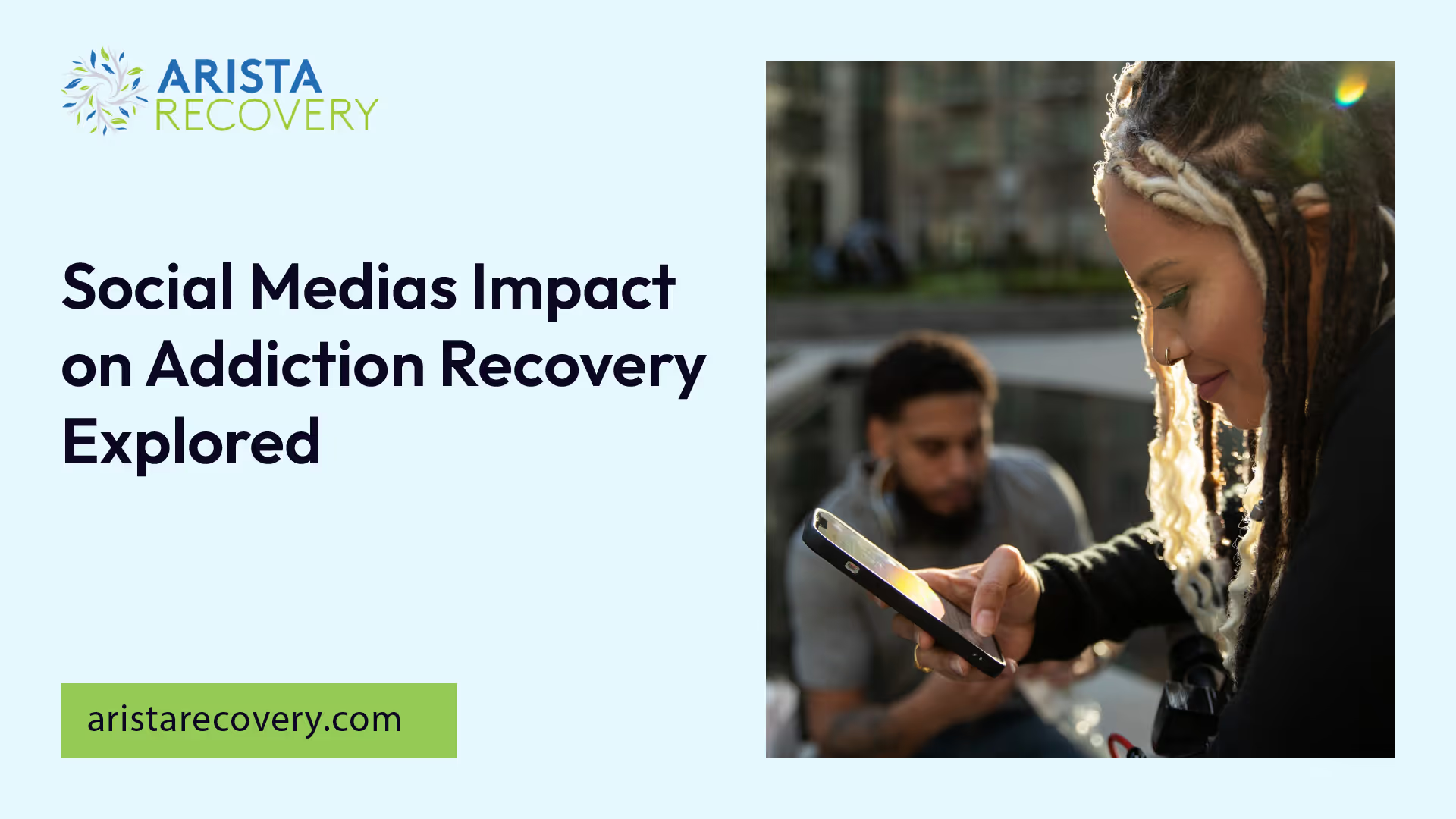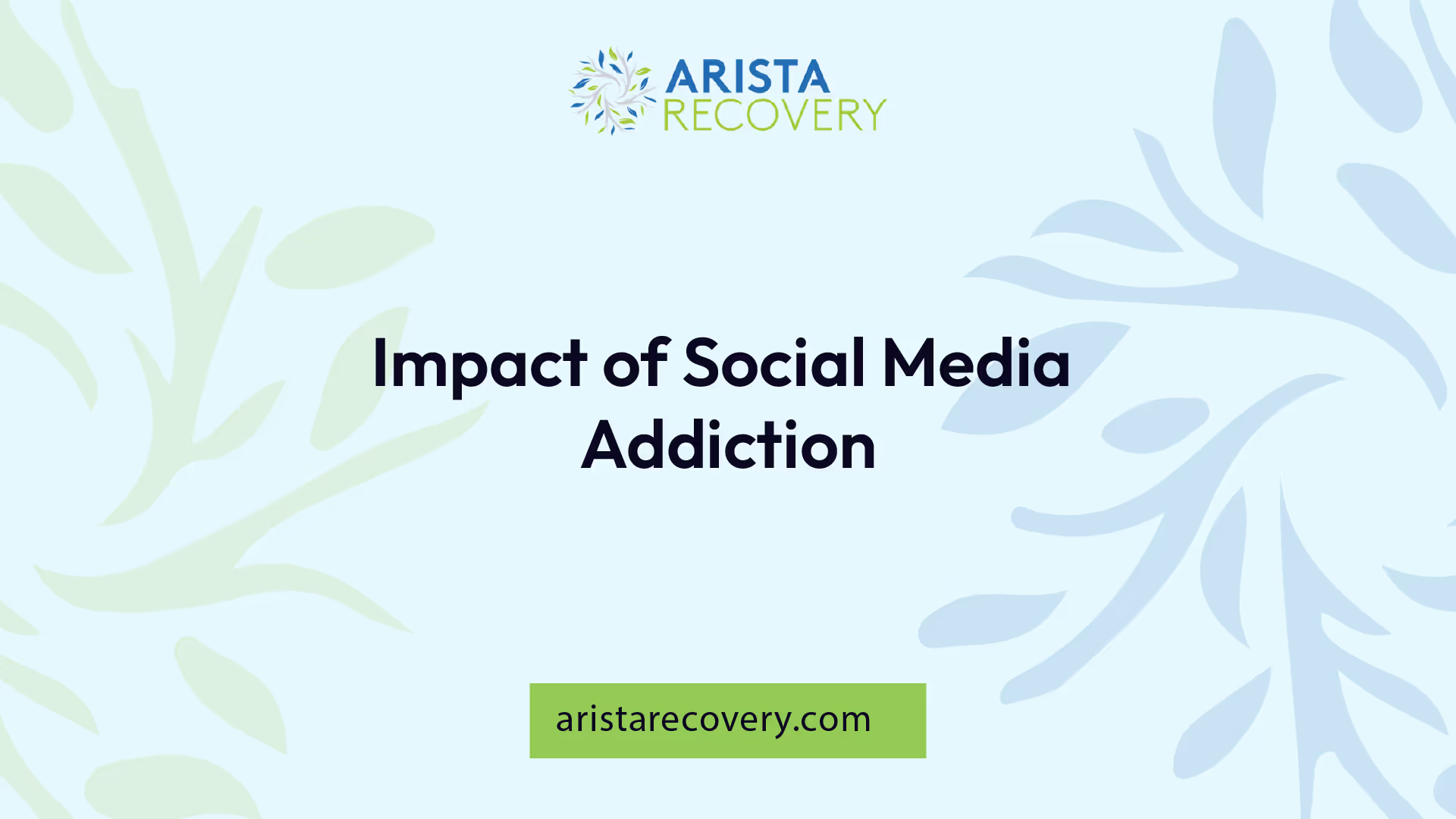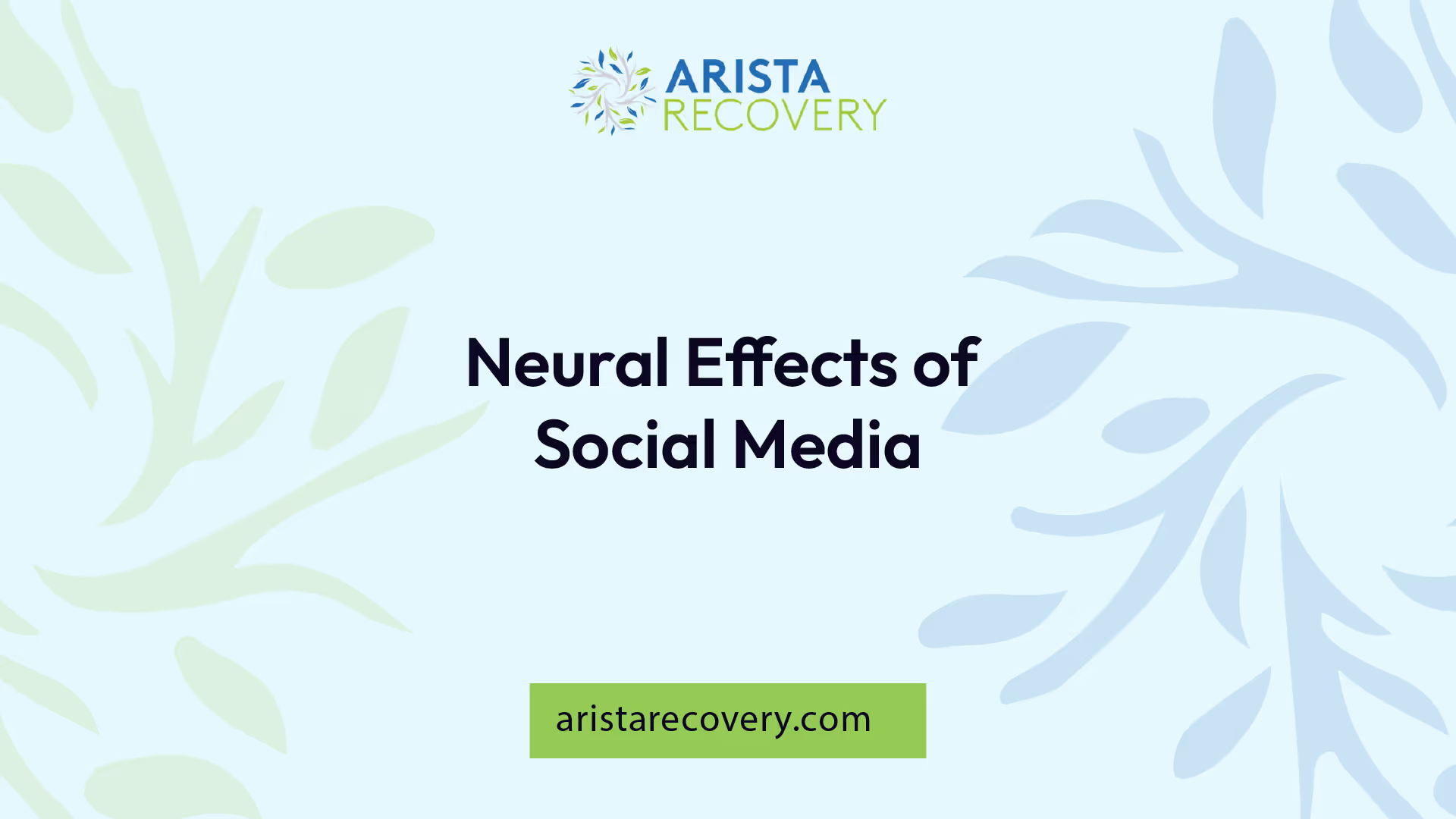Social Medias Impact on Addiction Recovery Explored

Understanding Social Media Addiction
Delving into the realm of social media addiction, it's essential to grasp the definition and characteristics of this modern-day phenomenon and understand its prevalence in American society.

Definition and Characteristics
Social media addiction shares striking similarities with substance use disorders, encompassing traits such as mood modification, salience, tolerance, withdrawal symptoms, conflict with other activities, and relapse. These platforms trigger neural circuitry, particularly dopamine release upon positive feedback reception, fostering desires for continued engagement and validation.
Individuals experiencing social media addiction may exhibit compulsive behaviors, incessantly seeking gratification through online interactions and validation. This dependency on social media for emotional fulfillment can lead to neglect of real-life responsibilities, strained relationships, and adverse mental health consequences.
Prevalence in American Society
Statistics reveal that approximately 5 to 10% of Americans meet the criteria for social media addiction, with a notable impact on mental health and relationships, particularly among children and young adults [1]. The addictive nature of social media consumption mirrors patterns seen in substance use disorders, characterized by compulsive usage patterns and a diminished ability to control impulses.
The constant validation received through social media notifications, such as likes and mentions, triggers a dopamine rush, creating a cycle of pleasure-seeking behavior and reinforcement of the habit [2]. This repetitive reward system can lead individuals to rely on social media as a coping mechanism, especially during times of stress, loneliness, or depression, further deepening their addiction and skewing their perception of real-world interactions.
Incorporating a deeper comprehension of the definition, characteristics, and prevalence of social media addiction is essential in addressing its impact on addiction recovery and overall well-being. By raising awareness and promoting healthy online habits, individuals can navigate the digital landscape more mindfully and establish a healthier relationship with social media platforms.

Impact of Social Media Addiction
The impact of social media addiction goes beyond just screen time; it can have profound effects on mental health, social interaction skills, and body image concerns.
Mental Health Effects
Overuse of social media platforms can lead to detrimental effects on mental health, especially impacting individuals in addiction recovery. Feelings of depression, anxiety, and isolation can be exacerbated by excessive social media use. The dopamine rush triggered by social media interactions can mirror the effects of addictive substances, making it challenging for individuals in recovery to maintain healthy habits and behaviors [3].
Real-world human connection is essential for alleviating stress and promoting happiness, health, and positivity. However, social media can often act as a barrier to forming these genuine relationships, hindering the emotional support needed for successful recovery. For more information on breaking the cycle of addiction within families, visit our article on breaking the cycle of addiction in families.
Social Interaction Skills
One significant impact of social media addiction is the stunted development of social interaction skills. Constant reliance on digital communication can hinder the ability to engage in face-to-face interactions, which are crucial for building meaningful relationships and support networks, especially during the recovery process [3].
Individuals in addiction recovery may find it challenging to cultivate real-world connections and communities when social media serves as a distraction from forming genuine bonds. Engaging with online communities that promote substance use can pose a significant challenge, potentially triggering cravings and hindering the recovery journey. Exploring realistic films about addiction can provide insight and support for those facing similar struggles; check out our article on realistic films about addiction for more information.
Body Image Concerns
Social media platforms often perpetuate unrealistic beauty standards and curated lifestyles, leading to body image concerns among users. Exposure to idealized and unattainable body images can fuel feelings of inadequacy and contribute to issues related to self-esteem and self-worth.
For individuals in addiction recovery, these body image concerns can be particularly challenging, as they may already be grappling with issues related to self-acceptance and identity. It's crucial to address these concerns and work towards fostering a positive self-image through self-care practices and seeking support from professionals or support groups. To explore how pets can aid in the recovery process and provide emotional support, refer to our article on how pets can help with the recovery process.

Neural Effects of Social Media
Unraveling the intricate web of addiction and its connection to social media reveals the profound neural effects that can ensue. Understanding the dopamine release mechanism intertwined with social media engagement and drawing a comparison to substance use illuminates the depth of this impactful relationship.
Dopamine Release Mechanism
Social media platforms are cunningly designed to activate the same neural circuitry as gambling and recreational drugs, leading to the release of dopamine in the brain upon interactions such as receiving notifications or positive feedback. This surge of dopamine fuels a cycle of reward and reinforcement, compelling individuals to seek more engagement, mirroring addictive behaviors [1].
This dopamine-induced response can establish a sense of salience, tolerance, and even withdrawal symptoms, akin to what is observed in substance use disorders. The allure of social media stimuli can trigger a significant dopamine release, fostering a habitual engagement pattern that parallels addictive tendencies, contributing to the captivating yet potentially harmful nature of social media addiction.
Comparison to Substance Use
The addictive potential of social media is further underscored by the parallels it shares with substance use. Research has revealed that heavy use of social media is linked to a heightened risk of mental health challenges such as depression, anxiety, loneliness, self-harm behaviors, and even suicidal ideation, emphasizing the detrimental impact social media can have on mental well-being and its potential addictive nature.
Platforms like TikTok, Facebook, Snapchat, and Instagram foster dopamine-inducing social environments that can trigger the brain's reward center similarly to substances like cocaine. This alignment exposes the alluring and addictive nature of social media interactions, shedding light on the profound influence these platforms wield over individuals' behaviors and emotional responses [6].
The exposure to substance-related content on social media adds another layer of complexity to the challenge of addiction recovery. Such exposure can reignite cravings, romanticize substance use, and amplify temptations, making it arduous for individuals in recovery to resist triggers and maintain their progress. This underscores the pivotal role social media plays in either supporting or hindering the recovery journey, accentuating the need for strategies that foster healthy online interactions and minimize triggers [7].
By probing into the neural effects of social media, particularly the dopamine release mechanism and its resemblance to substance use patterns, we can comprehend the intricate interplay between social media engagement and addictive behaviors, paving the way for informed strategies to address and navigate this evolving landscape of addiction recovery in the digital age.
Connection to Substance Use
The connection between social media use and substance use has become increasingly evident, especially among young adults. The correlation between these two factors, particularly among women, is noteworthy. Spending more time on social media platforms has been associated with an increase in substance use behaviors.
Correlation Among Young Adults
Young adults, especially women, exhibit a significant correlation between their social media habits and substance use patterns. The influence of social media on behaviors related to substance use is a growing concern in this demographic. Studies have shown that the more time individuals spend on social media each day, the higher the likelihood of engaging in substance use activities.
Increased Substance Use
Excessive social media consumption can lead to increased feelings of loneliness and inadequacy, as highlighted by APN Resources. Despite the platforms being designed for connectivity, heavy use can paradoxically result in feelings of isolation, pushing individuals towards seeking comfort or escapism in alcohol and other substances. This pattern can potentially lead to the development of dependency issues related to substance use.
It's crucial to recognize the impact that social media engagement can have on behaviors related to substance use. By understanding the correlation between social media use and substance use, individuals can take proactive steps to manage their online interactions and mitigate the risk of falling into patterns of addictive behaviors. For more insights on breaking the cycle of addiction within families, explore our article on breaking the cycle of addiction in families.
Challenges in Addiction Recovery
Navigating the landscape of social media addiction poses unique challenges to individuals in addiction recovery. Two critical challenges faced are the emotional nuance in online interactions and the lack of empathy and compassion often experienced in virtual environments.
Emotional Nuance in Online Interactions
When individuals engage in social media platforms, they may encounter challenges related to emotional nuance. The lack of face-to-face communication can hinder the full understanding of emotional cues and tones present in personal interactions. This deficiency in emotional nuance can lead to misinterpretations, misunderstandings, and miscommunications, impacting the ability to establish genuine connections.
In the realm of addiction recovery, where emotional support and understanding play pivotal roles, the absence of emotional nuance in online interactions can pose significant obstacles. Individuals may struggle to express their feelings authentically, receive adequate emotional support, or interpret the emotions of others accurately, hindering the recovery process.
Lack of Empathy and Compassion
Moreover, the digital nature of social media platforms can contribute to a lack of empathy and compassion in online interactions. The virtual environment often fosters a sense of detachment and anonymity, diminishing the natural human inclination towards empathy and compassion. Without the immediate presence of individuals and real-time emotional cues, it can be challenging for empathy and compassion to fully resonate through digital communication.
In the context of addiction recovery, where empathy, compassion, and understanding are fundamental to healing and growth, the absence of these elements in online interactions can impede progress. Individuals may struggle to receive the emotional support they need, feel disconnected from their support networks, or encounter insensitivity and misjudgments in virtual interactions, affecting their overall well-being.
Addressing the challenges posed by emotional nuance and the lack of empathy and compassion in online interactions is essential for individuals navigating addiction recovery in the digital age. By recognizing these barriers and actively seeking ways to foster genuine connections, promote empathy, and cultivate compassion both online and offline, individuals can enhance their recovery journey and build a strong support system that transcends the digital divide.
Strategies for Healthy Social Media Use
When it comes to navigating social media in the context of addiction recovery, adopting strategies for healthy usage is vital for maintaining progress and well-being. Two key strategies to consider are avoiding triggers and temptations, as well as balancing online and offline interactions.
Avoiding Triggers and Temptations
Social media platforms can often be a double-edged sword for individuals in addiction recovery. While they can provide a sense of community and support, they can also expose users to triggering content that may jeopardize their progress [1]. To mitigate the risk of relapse, it's essential to identify and avoid triggers and temptations on social media.
One effective strategy is to curate your social media feed by unfollowing accounts or pages that promote substance use or glamorize addictive behaviors. Instead, follow accounts that provide positive and uplifting content related to recovery and well-being. Utilize platform tools that allow you to block or filter specific content that may be triggering.
Additionally, set boundaries around your social media usage. Allocate specific time slots for engaging with social media and prioritize real-world interactions and activities. Practicing mindfulness and being aware of how social media influences your emotions and behaviors can help you better manage triggers and cravings.
Balancing Online and Offline Interactions
While social media can be a valuable tool for staying connected and seeking support, it's essential to strike a balance between online and offline interactions for overall well-being. Spending excessive time on social media can lead to feelings of isolation, FOMO (Fear of Missing Out), and negatively impact mental health.
To maintain a healthy balance, prioritize face-to-face interactions with friends, family, and support groups. Engage in activities that promote physical well-being and mental health, such as exercise, hobbies, and practicing mindfulness. Make a conscious effort to spend quality time away from screens and immerse yourself in the present moment.
When utilizing social media for connection and support in addiction recovery, be selective about the content you engage with and the communities you participate in. Seeking out accounts and hashtags that align with your recovery journey can provide a positive and supportive online environment [8]. Remember that social media should complement your recovery efforts, not replace them. By finding a healthy balance between online and offline interactions, you can harness the benefits of social media while safeguarding your well-being and progress in addiction recovery.
References
[2]: https://www.addictioncenter.com/behavioral-addictions/social-media-addiction/[3]: https://apn.com/resources/social-media-recovery/[4]: https://www.helpguide.org/mental-health/wellbeing/social-media-and-mental-health/[5]: https://www.helpguide.org/mental-health/wellbeing/social-media-and-mental-health[6]: https://www.addictioncenter.com/behavioral-addictions/social-media-addiction[7]: https://wishrehab.com/blog/social-medias-impact-on-addiction-recovery-staying-connected-without-triggering-a-relapse[8]: https://www.addicted.org/news/the-pros-and-cons-of-social-media-when-in-addiction-recovery/
You’re not alone in this.
When mental health challenges and addiction intersect, it can feel isolating. At Arista, we offer compassionate, evidence-based, and trauma-informed care to help you heal, grow, and move forward.
You’re not alone in this.
When mental health challenges and addiction intersect, it can feel isolating. At Arista, we offer compassionate, evidence-based, and trauma-informed care to help you heal, grow, and move forward.
Support that moves with you.
You’ve taken a brave first step. At Arista Recovery, we’re here to help you continue with best-in-class care designed for long-term healing and support.
.webp)






